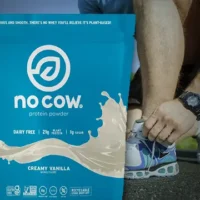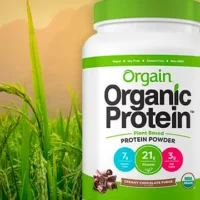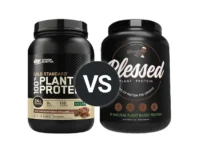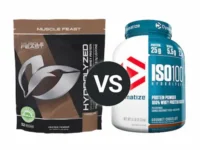Knowledge BaseYou're Questions Answered
Is plant based protein powder gluten free?
Plant-based protein powders are often a suitable option for individuals seeking gluten-free supplements, but it's essential to verify the ingredients and manufacturing processes to ensure they are truly gluten-free.
Understanding Gluten in Plant-Based Protein Powders
While most plant-based proteins such as pea, hemp, and rice are naturally gluten-free, cross-contamination can occur during processing if the facilities also handle gluten-containing grains like wheat, barley, or rye. Additionally, some plant-based protein powders may include additives or fillers that contain gluten.
How to Ensure Your Plant-Based Protein is Gluten-Free
- Check for Gluten-Free Labeling: Look for protein powders that are specifically labeled as gluten-free. This label indicates that the product has been tested and meets strict standards for gluten content below 20 parts per million (ppm)1.
- Review the Ingredient List: Avoid protein powders that contain ingredients like wheat, barley, rye, or any derivatives of these grains. Also, be cautious of vague terms like "natural flavors" that could potentially include gluten.
- Consider Certified Products: For added assurance, choose products that are certified gluten-free by a recognized third-party organization. These certifications mean the product undergoes regular testing to ensure compliance with gluten-free standards.
- Contact the Manufacturer: If you're unsure about the gluten status of a product, contact the manufacturer directly to inquire about their ingredient sourcing and manufacturing practices.
Consuming gluten inadvertently through contaminated plant-based protein powders can be a concern for people with celiac disease or gluten sensitivity. By choosing certified gluten-free products and carefully checking labeling and ingredients, individuals can safely incorporate these supplements into their diets.
- Celiac Disease Foundation. (2021). What is Gluten?
Related Questions
Related Reviews

Your Answer
We are a participant in the Amazon Services LLC Associates Program, an affiliate advertising program designed to provide a means for us to earn fees by linking to Amazon.com and affiliated sites.





